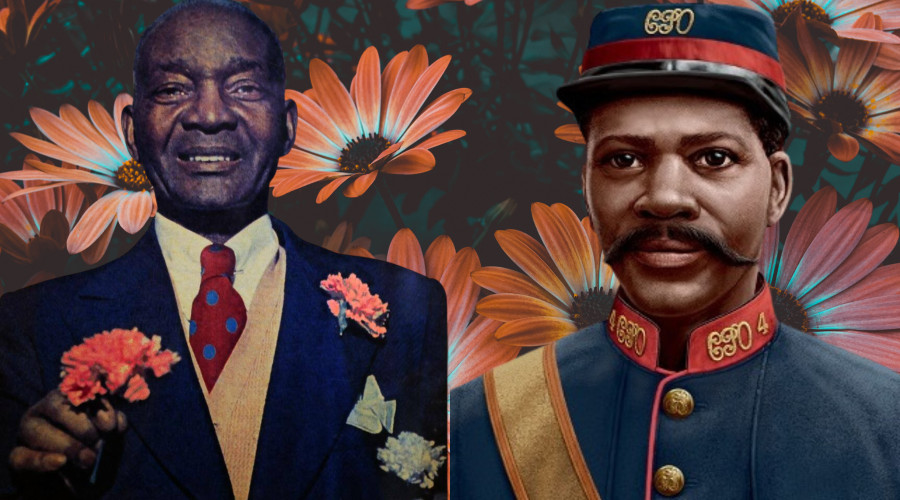It's saying, "Hey, Canada, remember that jazz club that had you swinging? That was us. We've been here, shaping this country's soul all along."
On September 16, 2024, Albert Calvin Jackson was announced as a person of national historical significance. Just three days later, on September 19, 2024, Rufus Nathaniel Rockhead received the same designation from the Canadian government.
These designations are like historical mic drops, challenging the whitewashed version of Canadian history. They prove that Black excellence isn't just a modern hashtag but a legacy as old as the nation itself.
And it's why Jamaican-born award-winning poet, author, and arts educator Nadine Williams, who now calls Ontario home, felt compelled to nominate Jackson and Rockhead as persons of national historical significance.
Canada’s historical hide-and-seek
“The stories of these two amazing Canadians are incredibly inspiring and need to be included in national consciousness,” says Williams. “We often hear that Canada is not like the U.S., and their stories dispel that myth and become a roadmap for us to follow on our own paths.”
Of course, Williams is referring to the false narrative that Canada has always been a safe haven for Black people escaping slavery and discrimination in the U.S., when in reality, slavery, racial discrimination, and oppression persisted north of the border as well.
"I became aware of Albert Jackson when I was invited to Ottawa by the Federal government to celebrate him a few years back, and I was also there when he was honoured in Toronto with the Canada Post stamp," says Williams. "His story is incredibly touching, and so in my research for subjects to nominate, I was happy to be the one to bring his name forward to the Historic Sites and Monuments Board."
{https://www.instagram.com/aburgfreedom/p/DABaBIBNMCI/}
Born into slavery in Delaware in 1857, Albert Calvin Jackson escaped to Canada with his mother, Ann Maria Jackson and siblings via the Underground Railroad as a toddler. In 1882, he was hired as a letter carrier in Toronto for Royal Mail Canada (now Canada Post). But his appointment faced fierce opposition from white colleagues who refused to train him. Despite facing racial discrimination and initially being demoted, Jackson's appointment was secured through community protests and intervention by Prime Minister John A. Macdonald. He served as a mail carrier for 36 years until he died in 1918, breaking barriers for Black Canadians in civil service.
"I stumbled upon Rufus Rockhead during my research, and I was intrigued by his Jamaican heritage," says Williams, who was selected as one of the Top 25 Canadian Immigrants in 2024.
“Jamaicans have often gotten a bad rap in this country and so I was delighted to bring his incredible story forward. To accomplish all he did in that period in history is phenomenal and speaks to the indomitable spirit of our African ancestry.
Rufus Nathanial Rockhead (1896 – 1981) was a Jamaican-born entrepreneur who impacted Montreal's jazz scene and Canadian cultural history. After immigrating to Canada in 1916 and serving in World War I, he established Rockhead's Paradise in 1929, one of Canada's only Black-owned nightclubs. The club became a cornerstone of Montreal's jazz scene, hosting local talents and international stars like Louis Armstrong and Ella Fitzgerald. At the time, Black people were not allowed to obtain liquor licenses, but Rockhead managed to get one. And despite facing racial discrimination, including temporary closures, Rockhead persevered and operated the club until 1980.
“Overcoming racial discrimination and achieving success in the face of gross hardships is an inspiration for us all,” says Williams. “For Rufus to have successfully operated a business, ‘Rockhead’s Paradise’ for 50 years in that period is a feat worth honouring and celebrating for generations to come. Albert Jackson mobilized the community to fight injustice, and they won. It’s the roadmap for others to follow, and it’s incredible that they won at a time when winning was scarce.”
So, who decides what or who makes history in Canada?
"Making history" in Canada is a dynamic interplay of official recognition, scholarly research, and grassroots advocacy. While government bodies like Parks Canada and the HSMBC play a pivotal role in evaluating and recommending national historical designations, any Canadian can nominate a person, place, or event for consideration, provided they meet specific criteria.
The next time you find yourself in a jazz club or eagerly awaiting an important letter, remember Rockhead and Jackson. These two remarkable figures didn't just make history; they delivered it with style, proving that even the most unexpected heroes can become national treasures in Canada.
If there's a person, place, or event you think deserves recognition for national historical significance, submit your nomination here.

 By
By 








